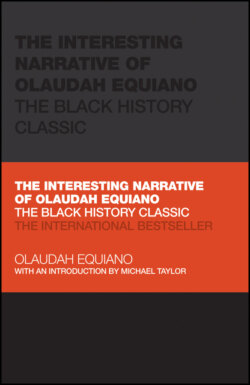Читать книгу The Interesting Narrative of Olaudah Equiano - Olaudah Equiano - Страница 9
BUSINESS VENTURES AND FREEDOM
ОглавлениеDespite what Equiano represents as faithful service to Pascal, they did not part on good terms. Equiano had won considerable prize money by boxing against other boys on the decks of ships, but when Pascal sold Equiano to another British officer in Gravesend, he refused to pay up. Indeed, when they chanced upon each other in later years, Pascal told Equiano that he would not have yielded a penny even if Equiano had won £10,000 by fighting.
Upon being sold once more – this time to the merchant Robert King, a Philadelphian who traded in the West Indies – Equiano spied a chance for redemption and freedom. Earning the trust of King and his shipmates, with whom he darted about the Caribbean on King's business, Equiano began to sell goods and earn money in his own right. By 1765 he had acquired £40, more than £7,000 in today's money, and this was enough to persuade King, however reluctantly, to permit Equiano to purchase his own freedom. Equiano even had £8 spare to buy a sparkling ‘super-fine’ light blue suit ‘to dance in at my freedom’.
What would he do with his newly earned liberty? Equiano does not quite know which path to follow. At first, he returns to what he knows, merchant sailing, and there follows the dramatic shipwreck of the sloop Nancy in the Bahamas, where in his judgment only Providence saved him from drowning or dying of thirst. Taking leave of the Americas, Equiano returns to London and, besides learning to play the French horn, takes up an apprenticeship in hairdressing at Haymarket. This does not suit the restless sailor, who again goes to sea. Now cruising the Mediterranean, he embarks on the mercantile equivalent of the Georgian era's Grand Tour: from Savoyard Nice to Tuscan Livorno – or as the British called it, Leghorn – and then to Ottoman Smyrna on the Aegean coast. Equiano even takes in the grand opera at Naples, where the eruption of Vesuvius in 1769 sprinkles ash on the deck of his ship.
By 1773, Equiano was ready for an altogether more expansive mission, enlisting on HMS Racehorse for an exploratory voyage to the Arctic in search of the elusive north-eastern passage to India. Led by Constantine Phipps – whose descendant, as governor of Jamaica, would do much to hasten the abolition of slavery in that colony – the journey produces one of the first English-language descriptions of polar bears, of which Equiano claims the crew killed nine. Having escaped the drifting ice packs which sundered many a ship beyond Svalbard, Equiano's next adventure takes him to the Mosquito Coast, the Caribbean shoreline which stretches along present-day Nicaragua and Honduras. Perhaps surprisingly, Equiano had gone into business here with a former shipmate in order to establish a slave plantation. Below we consider further the moral ambiguity of this endeavour.
